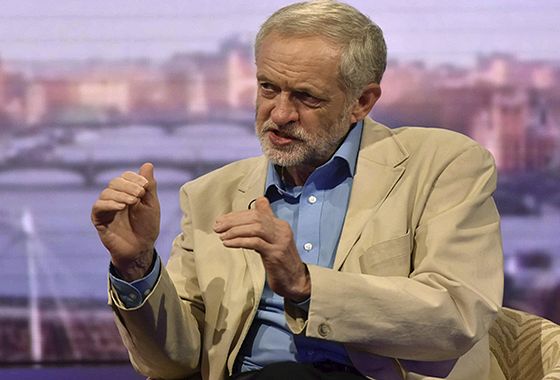He is the left-wing political underdog experts think could fatally split Britain’s opposition party. Jeremy Corbyn, a little-known backbench MP until
He is the left-wing political underdog experts think could fatally split Britain’s opposition party.
Jeremy Corbyn, a little-known backbench MP until a few weeks ago, is now the clear favourite to become the next leader of the Labour Party.
Current average predictions % in PB LAB leadership contest
Burnham 21.42
Cooper 20.31
Corbyn 48.49
Kendall 8.86
http://t.co/Yp4flq05KG— Mike Smithson (@MSmithsonPB) September 2, 2015
He is competing with Andy Burnham, Yvette Cooper and Liz Kendall to succeed Ed Miliband, who quit after the Conservatives retained power in May’s election.
Corbyn, 66, was first elected as MP for Islington North (London) in 1983, when all his other leadership rivals would still have been at school.
His rise to become leadership favourite is remarkable – he only made it onto the ballot paper by a whisker after a frantic last-minute scramble to rustle up the required 35 nominations from other Labour MPs.
What are Jeremy Corbyn’s political views?
Corbyn is by far the most left-wing of the four candidates and has said he may make state ownership of key industries a central plank of Labour ideology again.
In an interview with The Independent on Sunday newspaper, Corbyn said he would consider re-establishing “common ownership of the means of production, distribution and exchange”.
Triple election-winner Tony Blair scrapped the policy in 1995, a pro-business move that many said made Labour electable.
Corbyn has also pledged to move the centre-left party back to its socialist roots and put railway and energy networks into public hands.
What impact is his candidacy having on his party?
There are fears that Corbyn would take Labour so far to the left that the party would likely split.
Labour political heavyweights, such as Blair’s spin doctor Alastair Campbell, say his election would consign the party to electoral oblivion.
But the activists and trade unions that are supporting Corbyn say Labour’s centrist figures betrayed the party’s roots by copying Conservative policies at the last election.
What do the ruling Conservatives think about it?
The Conservatives, still with a spring in their step after their election triumph in May, could not be happier with Corbyn.
Tories, together with other figures from the right, have been sitting back and enjoying the possibility of Labour splitting.
Daily Telegraph even urged readers to sign up as Labour supporters and vote for Corbyn, to help saddle it with a “bearded socialist voter-repellent” as leader. Registering as a supporter of Labour – the deadline for which was August 12 – cost just £3.
Who are the other candidates in the race?
Andy Burnham, a former health secretary, was the early favourite to replace Ed Miliband. Liverpool-born Burnham, 45, seen as leaning towards the modernising Blairite faction of Labour, came fourth in the party’s leadership race in 2010.
Yvette Cooper, 46, is married to former Labour MP and Shadow Chancellor of the Exchequer Ed Balls. She is seen as a centrist candidate that doesn’t veer too strongly to either wing of the party.
Liz Kendall falls under the Blairite banner of the party and has picked up the support of her one-time rival Chuka Umunna, who withdrew his candidacy early on in the contest.
Former leader Blair, in office from 1997-2007, has urged Labour to reject Corbyn and elect a centrist candidate, if it wants to win back power in 2020.
“You win from the centre, you win when you appeal to a broad cross-section … You don’t win from a traditional leftist position,” Blair said.
What happens next?
The deadline for votes is September 10, with the results being announced two days later.
Voters pick a first and second-choice candidate. If a candidate gets more than half of first preference votes, he or she wins. If this doesn’t happen, the candidate with the lowest number of votes is eliminated. His or her second preference votes are then redistributed among the remaining candidates. This process continues until one candidate gets more than half of the vote.
- Jeremy Corbyn
LABOUR LEADERSHIP RACE 2015
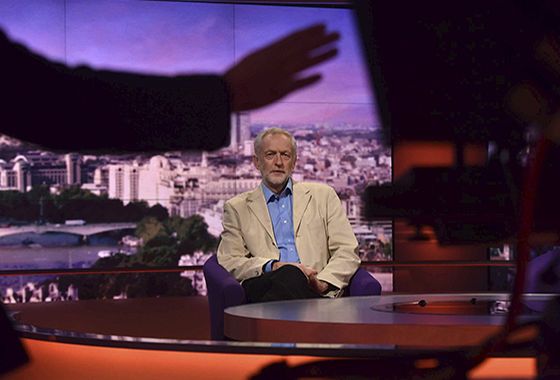
- #jezwecan badge
LABOUR LEADERSHIP RACE 2015
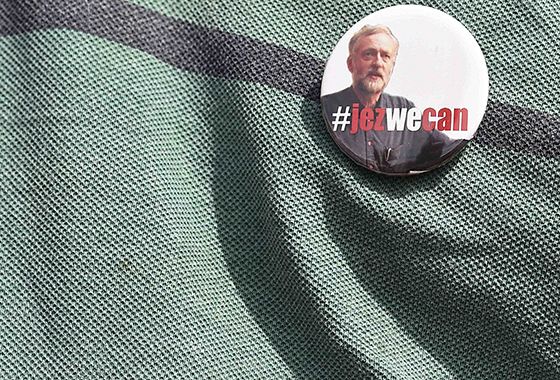
- Jeremy Corbyn
LABOUR LEADERSHIP RACE 2015
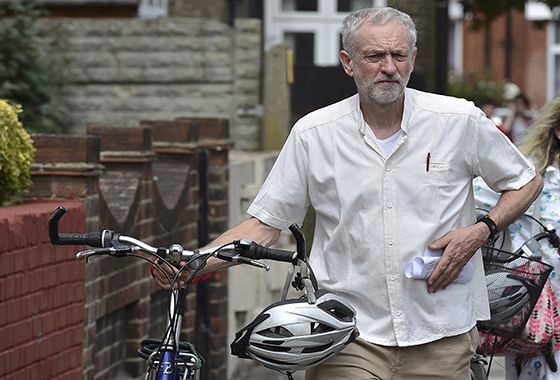
- Jeremy Corbyn
LABOUR LEADERSHIP RACE 2015
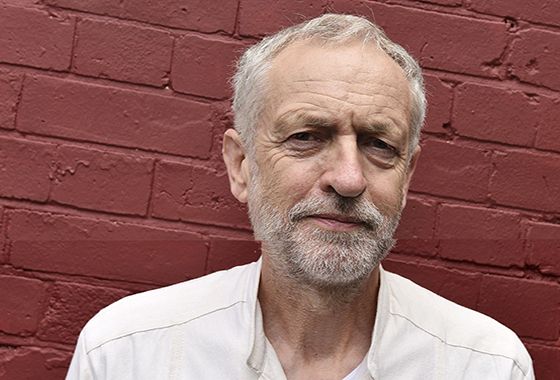
- Jeremy Corbyn
LABOUR LEADERSHIP RACE 2015
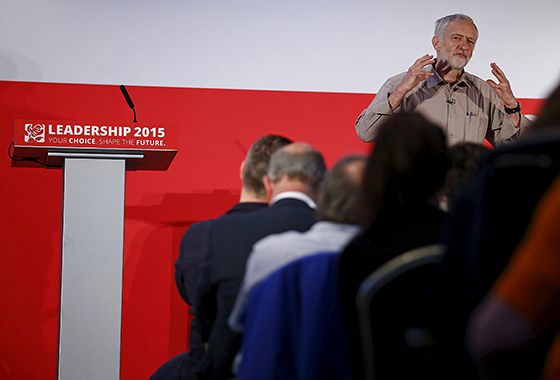
- All the candidates
LABOUR LEADERSHIP RACE 2015
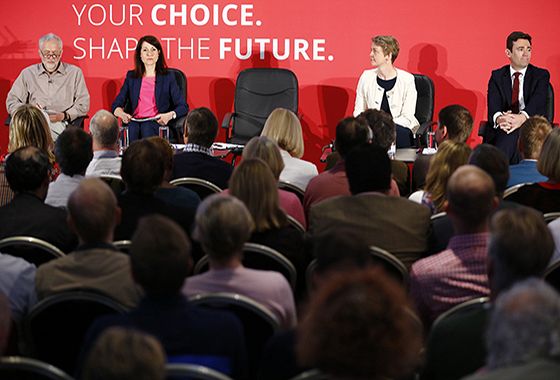
- Andy Burnham
LABOUR LEADERSHIP RACE 2015
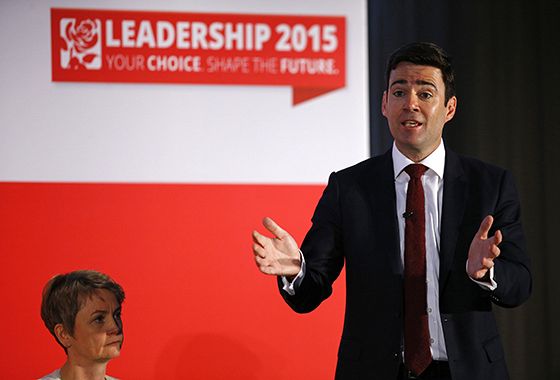
- Yvette Cooper
LABOUR LEADERSHIP RACE 2015
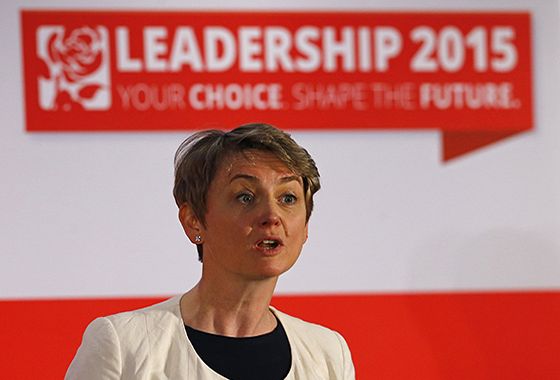
- Liz Kendall
LABOUR LEADERSHIP RACE 2015
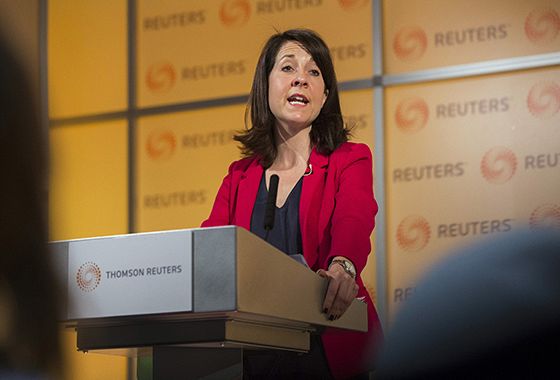
- Jeremy Corbyn
LABOUR LEADERSHIP RACE 2015
